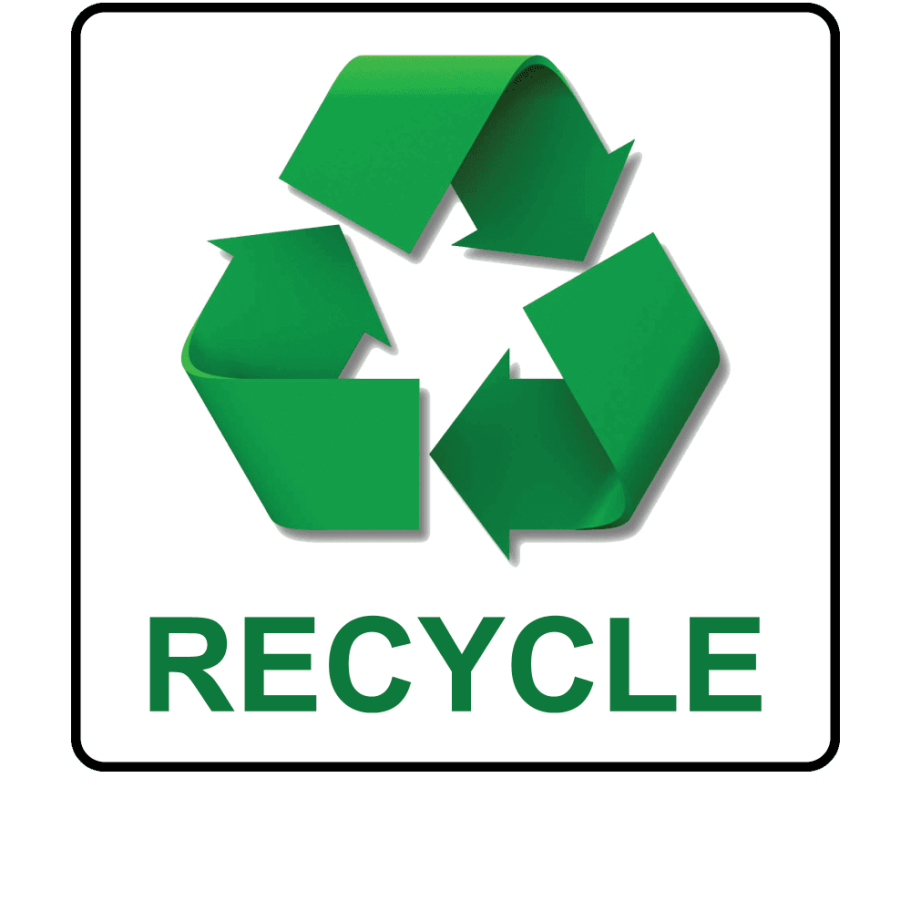
PAPER RECYCLING
Paper makes up 23 percent of municipal solid waste (trash) generated each year, more than any other material. Americans recycled about 68 percent of the paper they used in 2018. This recovered paper is used to make new paper products, which saves trees and other natural resources. Most community or office recycling programs accept paper and paper products.
Check what your community or office program accepts before you put it in the bin. Look for products that are made from recycled paper when you shop. Better yet, consider if you really need to print in the first place.
If the book is still in good condition, try donating it! Schools, places of faith, charities, and non-profits will often accept book donations. If the book is not in usable condition, it can be recycled. Paperback books can be recycled as-is; remove the cover from a hardcover book before recycling it.

Plastic Recycling
More than 35 million tons of plastics were generated in the United States in 2018 and only 8.7 percent was recycled. Some types of plastics are not accepted in community recycling programs. Check with your local recycling program to find out which types of plastic they accept. When possible, purchase products made from recycled plastic materials.
Check what your community or office program accepts before you put it in the bin. Look for products that are made from recycled paper when you shop. Better yet, consider if you really need to print in the first place.
If the book is still in good condition, try donating it! Schools, places of faith, charities, and non-profits will often accept book donations. If the book is not in usable condition, it can be recycled. Paperback books can be recycled as-is; remove the cover from a hardcover book before recycling it.

Glass Recycling
Glass, especially glass food and beverage containers, can be recycled over and over again. In the United States in 2018, 12.3 million tons of glass were generated, 31.3 percent of which was recycled. Making new glass from recycled glass is typically cheaper than using raw materials. Most curbside recycling programs accept different glass colors and types mixed together and then sort the glass at the recovery facility.
Check what your community or office program accepts before you put it in the bin. Look for products that are made from recycled paper when you shop. Better yet, consider if you really need to print in the first place.
If the book is still in good condition, try donating it! Schools, places of faith, charities, and non-profits will often accept book donations. If the book is not in usable condition, it can be recycled. Paperback books can be recycled as-is; remove the cover from a hardcover book before recycling it.

Aluminium Recycling
In 2018, 3.9 million tons of aluminum municipal solid waste was generated. The total recycling rate for aluminum items was 34.9 percent. Both aluminum cans and foil can be recycled. aluminum cans should not be crushed before they are recycled. For areas with single-stream recycling, crushed cans are harder to detect when being sorted at recycling facilities. If you live in an area with multi-stream recycling, crushing cans is not an issue.
Check what your community or office program accepts before you put it in the bin. Look for products that are made from recycled paper when you shop. Better yet, consider if you really need to print in the first place.
If the book is still in good condition, try donating it! Schools, places of faith, charities, and non-profits will often accept book donations. If the book is not in usable condition, it can be recycled. Paperback books can be recycled as-is; remove the cover from a hardcover book before recycling it.

Electronics Recycling
EPA estimates that 2.7 million tons of consumer electronics were generated in 2018. About 38.5 percent of these electronics were recycled. Electronics cannot be recycled curbside, but they can be dropped off at specific collection sites. Manufacturers and retailers offer several options to donate or recycle electronics, including cell phones, computers, and televisions.
Check what your community or office program accepts before you put it in the bin. Look for products that are made from recycled paper when you shop. Better yet, consider if you really need to print in the first place.
If the book is still in good condition, try donating it! Schools, places of faith, charities, and non-profits will often accept book donations. If the book is not in usable condition, it can be recycled. Paperback books can be recycled as-is; remove the cover from a hardcover book before recycling it.

Metal Recycling
In 2018, 19.2 million tons of ferrous metals (iron and steel) were generated. EPA estimates that the recycling rate of ferrous metals from durable goods was 27.8 percent. The same year, 2.5 million tons of nonferrous metals (not containing iron) were generated. The recycling rate for nonferrous metals was approximately 68 percent.
Check what your community or office program accepts before you put it in the bin. Look for products that are made from recycled paper when you shop. Better yet, consider if you really need to print in the first place.
If the book is still in good condition, try donating it! Schools, places of faith, charities, and non-profits will often accept book donations. If the book is not in usable condition, it can be recycled. Paperback books can be recycled as-is; remove the cover from a hardcover book before recycling it.
We need your consent to load the translations
We use a third-party service to translate the website content that may collect data about your activity. Please review the details in the privacy policy and accept the service to view the translations.

